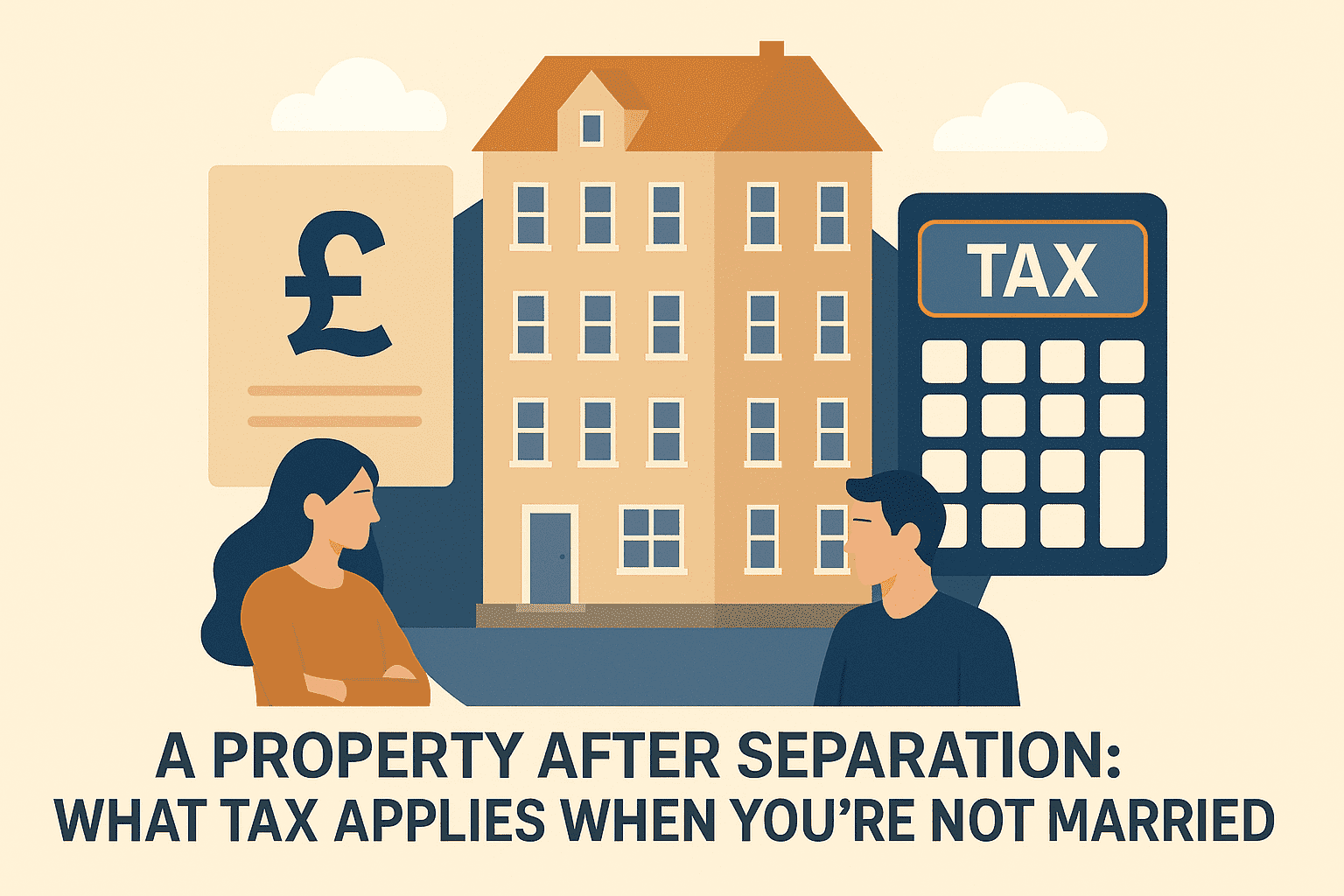When relationships end, property ownership can get complicated — especially when you were never married.
If one partner wants to transfer their share of a rental property to the other, the tax rules are not as simple as “just sign it over”.
📺 Watch: Can You Transfer a Property From Your Ex Without Paying Tax?
Let’s look at what really happens when property changes hands between unmarried partners, using a recent real-life scenario.
The Scenario
A couple bought a flat together in 2007.
They later separated but kept the property as a rental, managed by one partner.
The flat is worth about £230,000 with a £150,000 mortgage in the ex-partner’s sole name.
He now wants to transfer it fully to his former partner — along with the tenants — before renewing the mortgage.
Both are 40% taxpayers and want to know the most tax-efficient way to make the change.
Capital Gains Tax (CGT): For the Partner Giving Up the Property
When a property is transferred between people who are not married or in a civil partnership, it’s treated as a disposal at market value.
That means the person giving it up (the ex-partner) is taxed as if they sold it — even if no money changes hands.
Key points:
- The gain is the difference between the original purchase price and today’s market value.
- Costs like legal fees and improvements can reduce the gain.
- If they ever lived in the property, Private Residence Relief may apply for that period.
- The disposal must be reported to HMRC within 60 days if CGT is due.
So in this case, the ex-partner could face a CGT bill even though he’s simply “gifting” the property.
You can also read our post on What Expenses Can You Claim When Selling a Rental Property? — it explains which selling costs can reduce your Capital Gains Tax bill.
Stamp Duty Land Tax (SDLT): For the Partner Taking It Over
The person receiving the property (the ex-partner’s former partner) may also face tax.
If they take on any part of a mortgage, HMRC sees that as payment for the property.
SDLT is then calculated on the amount of debt they assume.
Example:
- Mortgage balance: £150,000
- SDLT due on £150,000, plus the 5% additional property surcharge if they already own another home.
Even if no cash changes hands, SDLT can still apply purely because of the mortgage.
Other Costs to Watch
- Legal and lender fees for the transfer of equity.
- CGT reporting for the person giving it up.
- SDLT return for the person taking it over.
- Valuation — market value must be reasonable if HMRC checks.
If you’re weighing up whether a company might work better, read our post on Limited Company or Personal Name – Which Is Better for Rental Property in 2025 – blog coming shortly on 4 November. It compares the real tax differences between the two routes.
Can You Avoid the Tax by Using a Limited Company?
Some people consider transferring the property into a company instead.
However, this doesn’t remove the taxes — it usually adds more:
- The individual still pays CGT as if they sold it to the company.
- The company pays SDLT on the market value.
- Future profits are taxed at Corporation tax rates, and dividends drawn out are taxed again personally.
A company can make sense for future acquisitions, but it rarely helps when you’re simply transferring an existing property between individuals.
Reporting Deadlines
- CGT 60-Day Rule – any taxable disposal of UK residential property must be reported and paid within 60 days.
- SDLT Return – due within 14 days of completion (often handled by the Solicitor).
Key Takeaways
- Transfers between unmarried partners are taxed as if sold at market value.
- CGT applies to the person giving up the property.
- SDLT applies to the person taking it on, if there’s a mortgage.
- Marriage or civil partnership changes the rules — inter-spousal transfers are usually tax-free.
- A Property Tax Review helps you plan timing, reliefs, and costs before committing.
Need Expert Help Before You Transfer Property?
If you’re separating, refinancing, or planning to take over a rental from your ex, don’t guess the tax.
A Property Tax Review can show you:
- Your estimated CGT and SDLT
- How timing affects both
- The most efficient way to transfer or sell
Book a clarity call or email info@gracecertifiedaccountants.com to get started.
